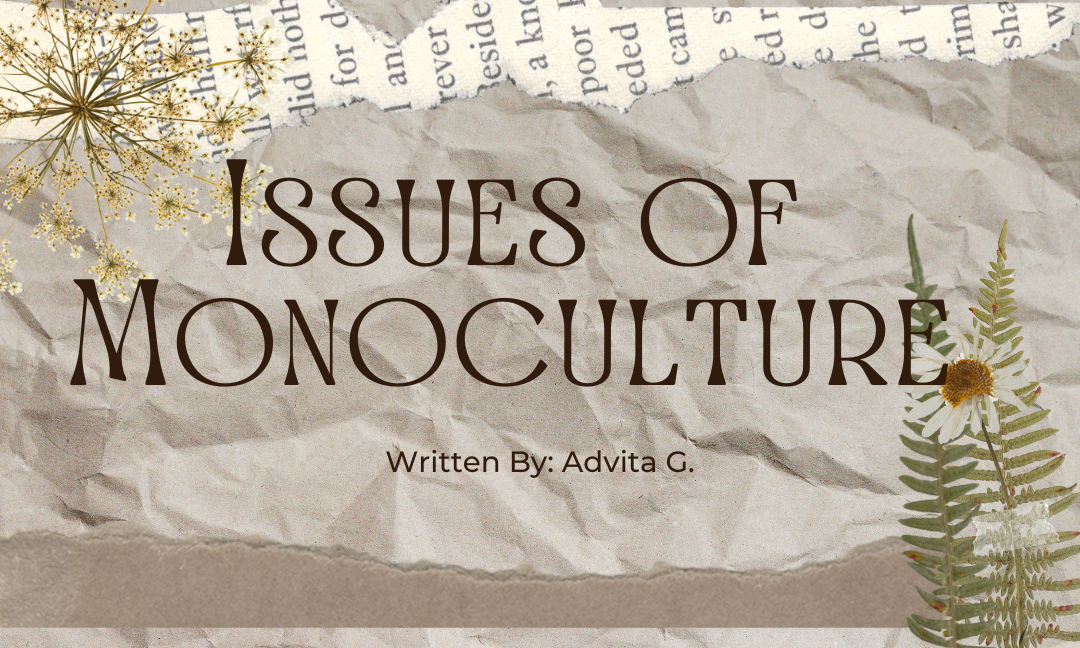Written by: Advita
Edited by: Ravjyot Ughra
Designed by: Jiya Mehta
Published by: Maryam Khan
There are many issues with monoculture but before we get into that, what exactly is monoculture?
Well, the definition of Monoculture is when one cultivates crops that are of the same species on an agricultural or forest land. Good examples of monoculture are corn fields and wheat fields. However, to do this large areas with an abundance of biodiversity have to be cleared just to grow a single type of crop. (One of the biggest consequences of monoculture is low biodiversity.) That means that diverse ecosystems are destroyed causing many different species to lose their home only to be replaced with a space that has a low biodiversity.
What’s so important about biodiversity, you ask?
A biodiverse ecosystem is when there is a large, rather intertwined food web, meaning that every organism might have multiple sources of energy. The reason biodiversity is important for an ecosystem to survive is because it can help fight off diseases within ecosystems and keep different species away from extinction etc. The higher the biodiversity, the stronger the ecosystem is. In other words, the environment would thrive but without it everything would eventually die off.
Loss of biodiversity caused by monoculture can affect the natural balance of the soil. Too much of the same organism species takes away from the nutrients in the soil. Having only one type of crop also means that there is only one type of root to absorb moisture and keep the soil from eroding, something that usually calls for a variety of roots.
Another huge consequence of monoculture farming is the impact it has on pollinators.
Pollinators, such as bees, are a significant part of the “natural reproductive cycle”. The large stretches of land growing a single type of crop, leaves the pollinators to suffer a shortage of nutrients due to the low variance of nourishment in their diets.
To sum it all up, there are many issues with monoculture farming. There are some benefits with it though unfortunately the cons far outweigh the pros. Monoculture is not good for our environment and ecosystems. While it might be a convenient way to farm now, it is not a sustainable path for both our futures and our future generations.
So remember to steer clear of monoculture farming!
Sources:
https://eos.com/blog/monoculture-farming/
previous assignment on biodiversity
https://stats.oecd.org/glossary/detail.asp?ID=1685#:~:text=Monoculture%20refers%20to%20the%20repeated,a%20given%20area%20of%20land.

